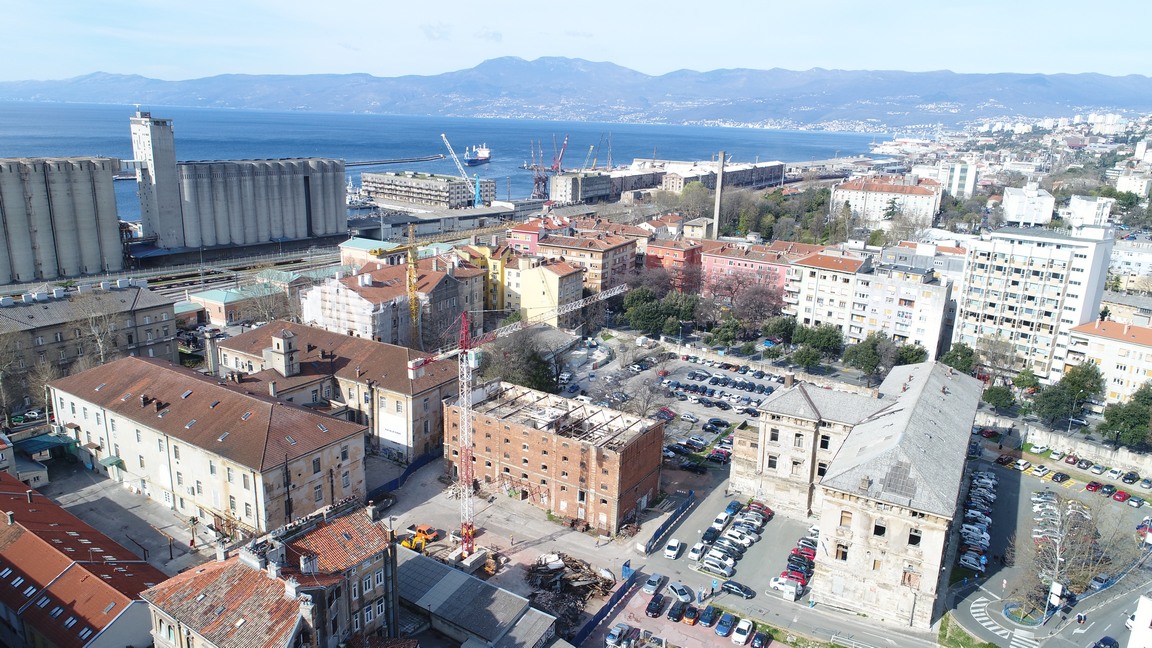An abandoned industrial area in Rijeka, Croatia, is being transformed into a modern cultural district housing the city’s museum, library, and a creative space for children. The investment forms part of the Rijeka 2020 European Capital of Culture project and is jointly funded by the ERDF, the city, and national government.
New cultural life for historic factory complex in Rijeka, Croatia
- 10 July 2020
Over time, the building has become neglected and degraded. But things are looking up and the day when it is filled with the laughter of children is near.
After more than two decades of being abandoned, three buildings, in the Rikard Benčić factory complex in Krešimirova Street, are being transformed to provide bigger and more suitable accommodation. This will benefit the City Museum of Rijeka, the Rijeka City Library, and the Children’s House – the first such building in Croatia dedicated to the development of creativity in children.
The project will help promote cooperation between these three cultural entities. The complex's open space is being revamped for general public use. The institutions, in collaboration with Rijeka's citizens, will plan further development of the cultural district, in line with changing urban needs and developments.
The project is expected to be completed by April 2022.
Rikard Benčić’s long history
The Museum of Modern and Contemporary Art, funded entirely by the City of Rijeka, has already moved into the Benčić complex after the successful completion of the first phase of the project. It will continue its expansion into the remaining areas of the building once these have been renovated.
The Children’s House will cater for young and older children and include a film studio, a music studio, video game production, a small amphitheatre, a baby theatre, a puppet-making studio, a playroom and library, and facilities adapted for children with developmental disabilities.
The complex was identified as the ideal site for these eminent cultural institutions because of its central position and potential to improve the quality of cultural life in the built-up area of central Rijeka.
This is not the first time the old factory complex is undergoing change. The complex was originally constructed in the 18th century as a sugar refinery and converted into a tobacco factory in the mid-19th century. After the Second World War, it was repurposed as the Rikard Benčić Factory of Engines and Tractors, which closed in 1995.
Capital of Culture
The European Capital of Culture is a project and title that the European Commission has awarded to competing cities since 1985. The cities have to prove that they consider culture an important aspect of their development.
Rijeka joins about 60 European cities to have been awarded the coveted title, including Marseille, Linz, Essen, Graz, Dublin, Liverpool, Athens, Rotterdam, and Genoa. Rijeka is the first Croatian city to hold the title.
Total investment and EU funding
Total investment for the project “Revitalisation of Former Industrial Complex Rikard Benčić in Rijeka” is EUR 35 600 000 (HRK 267 701 220), with the EU’s European Regional Development Fund contributing EUR 15 800 000 (HRK 119 115 852) through the “Competitiveness and cohesion” Operational Programme for the 2014-2020 programming period. The investment falls under the priority “Sustainable urban development”.

